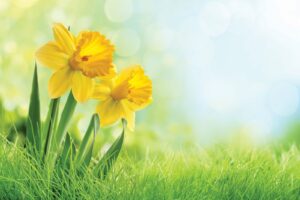I suspect that doing the right thing is, in the end, simply cultivating an appropriate and deliberate respect for all the beautiful variations and possibilities of one another.
I always thought they were a gift from my mother.
The wild and brilliant red rose vines burst into my yard, along the front of the house, just beneath my bedroom windows, the very first spring following my mother’s death. They have been bringing me delight and insight rather consistently ever since.
It’s been almost a decade now. And I’ve always refrained from interfering with their spontaneity, their free-form loveliness, even their integration with the window shutters and roof line and other architectural aspects of the house itself, as well as their fellow plants that grow and coexist among them.
But this spring, they seemed to be struggling a bit. And so I had an arbor built just for them — to give them a place of respite, a chance to sit down at the dance. I had to coax them to it, with soft brown string and gentle tucking in around their edges, showing them where I thought they should go, how they should grow. They promptly rebelled at my efforts, rather blatantly. They even went so far as to stop blooming altogether, breaking off their own limbs in protest, rejecting the shade that resulted from the arbor, pulling free from the brown string and well-intentioned urgings.
My subsequent research suggested that I should perhaps be fertilizing them — nurturing them in a more root-based way — feeding them with rich nutrients and supplements that I thought they might be missing on their own. Ever the hopeful (if not always effective) environmentalist, I gathered the most eco-friendly natural substances that I had read or heard they would enjoy. I saved teabags and coffee grounds and egg shells. Friends brought me banana peels and molasses. I added small amounts of vinegar and epsom salts. And, according to instructions, I spread them like offerings at the base of the wild things (hoping not to attract other wandering “wild things” to sample the buffet).
The first night after I had applied the feeding, I went to bed with windows wide open to the night air and evening breezes. And it became woefully evident that I was sleeping rather in the center of a garbage dump, a literal compost heap. The overripe stench filled the room with all its pungent properties. Especially the bananas and vinegar.
The next morning I put on my thick serious shoes and stepped into the middle of it all and I tried covering everything over with a layer of earth, which did help. And the dogs and cats and other neighborhood animals were greatly entertained.
But while I was working through the resistant and rocky soil, and bleeding through the insistent and ever-present thorns, I began to suspect that this could be viewed as a rather literal nature-based micro-lesson about humanity — about our human relationships, our global society.
Suppose we could imagine life in the simple terms of a rose — with all its beauty as well as its thorns. And suppose we are personally responsible for growing that rose — for caring and nurturing it into being the very best version of itself — the very best version of ourselves. How many of us really know what that means?
Just as with my own roses experience, I suspect that doing the right thing for each other is often not what we think it should be. Sometimes our show of support can be like an arbor built for wild roses: it simply results in manipulation. No matter how gently or well-intentioned the soft brown strings are tied, they are restrictive and disrespectful, keeping us from knowing the naturally diverse existence and unique blossoming that was meant to be there.
Like with my roses, doing the right thing for each other may at times be messy and unpleasant and opening ourselves up to unwanted things. Sometimes it means getting our hands dirty and scratched to bits. And sometimes it can cause an awful stink, right in our own front yards.
I suspect that doing the right thing is, in the end, simply cultivating an appropriate and deliberate respect for all the beautiful variations and possibilities of one another. Seeking each other’s perspective. Accepting each other’s reality. Truth over supposition.
And perhaps, in the end, we will put on our thick serious shoes, and step into the middle of it all, and do the right thing for each other. Perhaps we will learn to care for one another like wild roses … like gifts from our mothers.
© Marti Healy 2020
























